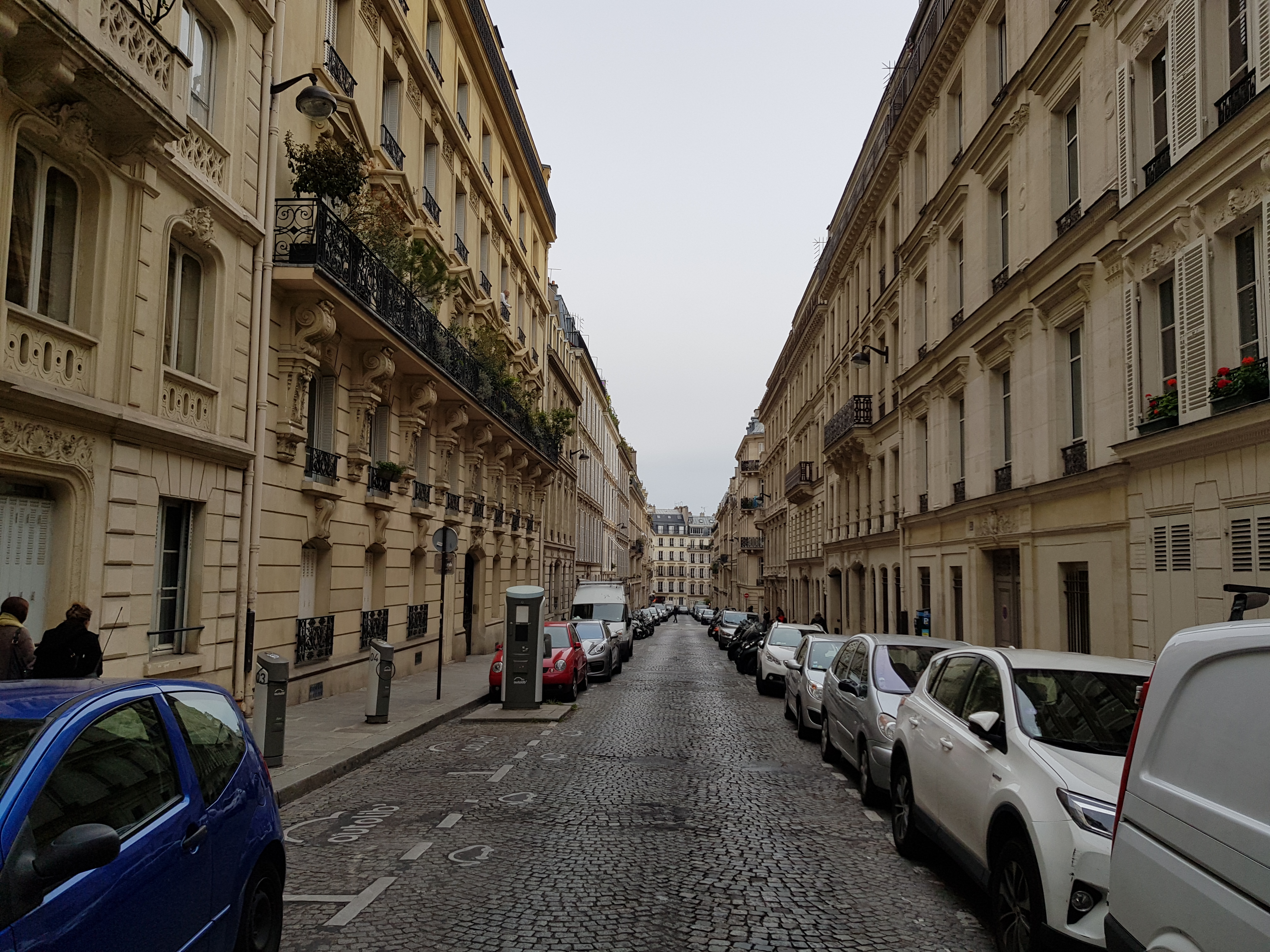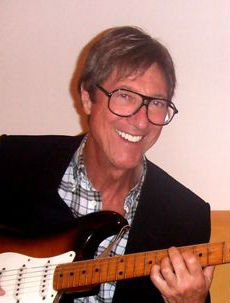|
Inch'Allah Dimanche
''Inch'Allah Dimanche'' ( ar, إن شاء الله الأحد, en, Sunday God Willing) is a 2001 French/Algerian movie by Yamina Benguigui about the life of an Algerian immigrant woman in France. Though this is Beguigui's first feature-length fiction film it is largely descriptive of her family's experience moving to France and the struggles for autonomy Algerian women continue to face even today. The film won a variety of international awards, including the 2001 International Critics' Award at the Toronto International Film Festival. Although Benguigui was urged to change the name of the film after the September 11 attacks, she chose to keep the original title, a portion of which is in Algerian Arabic. This film explores the complexities of immigration and the role of women in Algerian society. Cast *Fejria Deliba – Zouina *Rabia Mokeddem – Aïcha, mother *Amina Annabi – Malika *Anass Behri – Ali *Hamza Dubuih – Rachid *Zinedine Soualem – Ahmed *Mathilde Seigner ... [...More Info...] [...Related Items...] OR: [Wikipedia] [Google] [Baidu] |
Yamina Benguigui
Yamina Benguigui (born Yamina Zora Belaïdi; in Lille on 9 April 1955) is a French film director and politician of Algerian descent. She is known for her films on gender issues in the North African (both Berbers and Arabs) immigrant community in France. Through her films, Benguigui gave a voice to many from the Maghrebi population in France. Life Benguigui's parents were Algerian and immigrated to France from Algeria in the early 1950s. She never discovered why her parents decided to leave Algeria, saying the subject was considered taboo. Born in Lille, Benguigui was the eldest daughter of six children and spent her childhood in northern France. Describing herself as a quiet child who grew up in the Islamic tradition, Benguigui was only 13 years old when she first decided to become a filmmaker. Her father was a political leader in the Algerian National Movement, and was jailed in France for three years as a political prisoner (she has also stated that he was jailed on two ... [...More Info...] [...Related Items...] OR: [Wikipedia] [Google] [Baidu] |
French Drama Films
French (french: français(e), link=no) may refer to: * Something of, from, or related to France ** French language, which originated in France, and its various dialects and accents ** French people, a nation and ethnic group identified with France ** French cuisine, cooking traditions and practices Fortnite French places Arts and media * The French (band), a British rock band * "French" (episode), a live-action episode of ''The Super Mario Bros. Super Show!'' * ''Française'' (film), 2008 * French Stewart (born 1964), American actor Other uses * French (surname), a surname (including a list of people with the name) * French (tunic), a particular type of military jacket or tunic used in the Russian Empire and Soviet Union * French's, an American brand of mustard condiment * French catheter scale, a unit of measurement of diameter * French Defence, a chess opening * French kiss, a type of kiss involving the tongue See also * France (other) * Franch, a surname * French ... [...More Info...] [...Related Items...] OR: [Wikipedia] [Google] [Baidu] |
2001 Drama Films
1 (one, unit, unity) is a number representing a single or the only entity. 1 is also a numerical digit and represents a single unit of counting or measurement. For example, a line segment of ''unit length'' is a line segment of length 1. In conventions of sign where zero is considered neither positive nor negative, 1 is the first and smallest positive integer. It is also sometimes considered the first of the infinite sequence of natural numbers, followed by 2, although by other definitions 1 is the second natural number, following 0. The fundamental mathematical property of 1 is to be a multiplicative identity, meaning that any number multiplied by 1 equals the same number. Most if not all properties of 1 can be deduced from this. In advanced mathematics, a multiplicative identity is often denoted 1, even if it is not a number. 1 is by convention not considered a prime number; this was not universally accepted until the mid-20th century. Additionally, 1 is the s ... [...More Info...] [...Related Items...] OR: [Wikipedia] [Google] [Baidu] |
2000s Arabic-language Films
S, or s, is the nineteenth letter in the Latin alphabet, used in the modern English alphabet, the alphabets of other western European languages and others worldwide. Its name in English is ''ess'' (pronounced ), plural ''esses''. History Origin Northwest Semitic šîn represented a voiceless postalveolar fricative (as in 'ip'). It originated most likely as a pictogram of a tooth () and represented the phoneme via the acrophonic principle. Ancient Greek did not have a phoneme, so the derived Greek letter sigma () came to represent the voiceless alveolar sibilant . While the letter shape Σ continues Phoenician ''šîn'', its name ''sigma'' is taken from the letter ''samekh'', while the shape and position of ''samekh'' but name of ''šîn'' is continued in the '' xi''. Within Greek, the name of ''sigma'' was influenced by its association with the Greek word (earlier ) "to hiss". The original name of the letter "sigma" may have been ''san'', but due to the complica ... [...More Info...] [...Related Items...] OR: [Wikipedia] [Google] [Baidu] |
2000s French-language Films
S, or s, is the nineteenth letter in the Latin alphabet, used in the modern English alphabet, the alphabets of other western European languages and others worldwide. Its name in English is ''ess'' (pronounced ), plural ''esses''. History Origin Northwest Semitic šîn represented a voiceless postalveolar fricative (as in 'ip'). It originated most likely as a pictogram of a tooth () and represented the phoneme via the acrophonic principle. Ancient Greek did not have a phoneme, so the derived Greek letter sigma () came to represent the voiceless alveolar sibilant . While the letter shape Σ continues Phoenician ''šîn'', its name ''sigma'' is taken from the letter '' samekh'', while the shape and position of ''samekh'' but name of ''šîn'' is continued in the '' xi''. Within Greek, the name of ''sigma'' was influenced by its association with the Greek word (earlier ) "to hiss". The original name of the letter "sigma" may have been ''san'', but due to the compli ... [...More Info...] [...Related Items...] OR: [Wikipedia] [Google] [Baidu] |
2001 Films
1 (one, unit, unity) is a number representing a single or the only entity. 1 is also a numerical digit and represents a single unit of counting or measurement. For example, a line segment of ''unit length'' is a line segment of length 1. In conventions of sign where zero is considered neither positive nor negative, 1 is the first and smallest positive integer. It is also sometimes considered the first of the infinite sequence of natural numbers, followed by 2, although by other definitions 1 is the second natural number, following 0. The fundamental mathematical property of 1 is to be a multiplicative identity, meaning that any number multiplied by 1 equals the same number. Most if not all properties of 1 can be deduced from this. In advanced mathematics, a multiplicative identity is often denoted 1, even if it is not a number. 1 is by convention not considered a prime number; this was not universally accepted until the mid-20th century. Additionally, 1 is the ... [...More Info...] [...Related Items...] OR: [Wikipedia] [Google] [Baidu] |
Souad Massi
Souad Massi (سعاد ماسي; born August 23, 1972), is an Algerian Berber singer, songwriter and guitarist. She began her career performing in the Kabyle political rock band Atakor, before leaving the country following a series of death threats. In 1999, Massi performed at the ''Femmes d'Algérie'' concert in Paris, which led to a recording contract with Island Records. Massi's music, which prominently features the acoustic guitar, displays Western musical style influences such as rock, country or the Portuguese fado but sometimes incorporates oriental musical influences and oriental instruments like the oud as well as African musical stylings. Massi sings in Classical Arabic, Algerian Arabic, French, occasionally in English, and in the Kabyle Berber language, often employing more than one language in the same song. Childhood and early bands Massi was born in Algiers, Algeria to a poor family of six children. She grew up in the working-class Bab El Oued neighborhood of Algi ... [...More Info...] [...Related Items...] OR: [Wikipedia] [Google] [Baidu] |
Françoise Hardy
Françoise Madeleine Hardy (; born 17 January 1944) is a French former singer and songwriter. Mainly known for singing melancholic sentimental ballads, Hardy has been an important figure in French pop music since her debut, spanning a career of more than fifty years with over thirty studio albums released. She rose to prominence in the early 1960s as a leading figure of the yé-yé wave, a genre of pop music and associated youth culture phenomenon that adapted to French the pop and rock styles that came from the United States and the United Kingdom. The singer differentiated herself from her peers by writing her own material, a rare feat in an industry dominated by older, male composers and producers. France's most exportable female singer of the era, Hardy rose to international fame and released music sung in English, Italian and German, in addition to her native French. She also landed roles as a supporting actress in the films ''Château en Suède'', '' Une balle au cœur'' an ... [...More Info...] [...Related Items...] OR: [Wikipedia] [Google] [Baidu] |
Jerry Lordan
Jerry Lordan (born Jeremiah Patrick Lordan, 30 April 1934 – 24 July 1995) was an English songwriter, composer and singer. He achieved 3 hit singles on the UK Singles Chart before focusing purely on songwriting. Amongst his songwriting credits were the chart hits "I've Waited So Long", "Apache", "Wonderful Land", "Diamonds", and " A Girl Like You". Career Born as Jeremiah Patrick Lordan in Paddington, London, England, Lordan taught himself to play piano and guitar as a child. He attended Finchley Catholic High School and went into National Service in the Royal Air Force as a radar operator. On leaving the RAF in 1955, he held a number of jobs including comedian, singer and in advertising. He began song-writing, and in 1958, with the help of contacts made in the advertising business a demo of one of his songs was heard by a record producer. The song, "A House, A Car and a Wedding Ring" was recorded by Mike Preston on Decca Records. It did not sell well, but the song was ... [...More Info...] [...Related Items...] OR: [Wikipedia] [Google] [Baidu] |
The Shadows
The Shadows (originally known as the Drifters) were an English instrumental rock group, who dominated the British popular music charts in the late 1950s and early 1960s, in the pre- Beatles era. They served as the backing band for Cliff Richard from 1958 to 1968, and have joined him for several reunion tours. The Shadows have had 69 UK chart singles from the 1950s to the 2000s, 35 credited to the Shadows and 34 to Cliff Richard and the Shadows. The group, who were in the forefront of the UK beat-group boom, were the first backing band to emerge as stars. As pioneers of the four-member instrumental format, the band consisted of lead guitar, rhythm guitar, bass guitar and drums. Their range covers pop, rock, surf rock and ballads with a jazz influence. The core members from 1958 to present are guitarists Hank Marvin and Bruce Welch and drummer Brian Bennett (who has been with the group since 1961) with various bassists and occasionally keyboardists through the years. Along wi ... [...More Info...] [...Related Items...] OR: [Wikipedia] [Google] [Baidu] |



